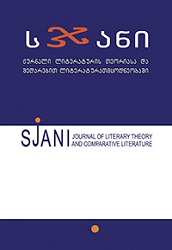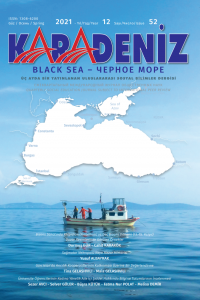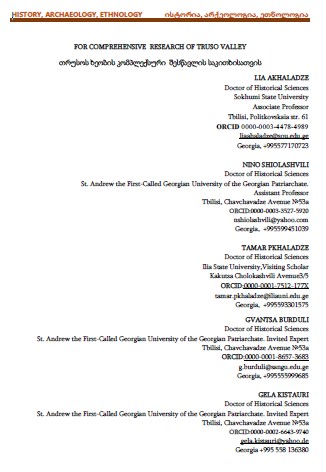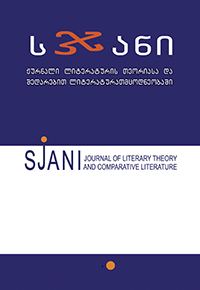Author(s): Tamta Savianidze / Language(s): Georgian
Issue: 9/2024
The multi-layered artistic reality embodied in the work of Tamaz Bibiluri, a Georgian writer of the second half of the 20th century, greatly expands the range of interpretation of the text. The prose by writer is an artistic space full of individualism, in which the inner world of a person, personal traits are revealed and shows the character of the era in this way, while the author's vision and ideological-worldview approaches are outlined. The prose by Tamaz Bibiluri is distinguished by a peculiar manner of narration, which is one of the expressions of his writing skill. Bibiluri's work is quite valuable from the point of view of research in terms of narratological criticism. Playing with narrative isn't rare in his stories and novels, when the four main components of narratology: multiplity of voices, accentuation of characters, author's and character's point of view, the role of writers and heros appear in perfect form. The variety of narrative storytelling is well demonstrated in the story -'The Holy' by Tamaz Bibiluri. The title of the work has a narratological function along with general artistic purpose. According to the Explanatory Dictionary of the Georgian language (Kegl: 1962. VII, 564-565), 'Qvelatsminda, the same as 'Qovladtsminda or ' Qovelitsminda in Georgian and in the Christian world means the Holy, Pure, exceptionally worthy in all aspects. Most of the above-mentioned terms are used in relation to Saints, but there are cases when they may also be used in relation to an ordinary, usual person. During the research of the narratological index of the characters of the story, the strict, restrained, moderate, and even overly conservative character of Tinia should be distinguished. However, when evaluating her as a character, the main thing is seeing a woman from a different point of view. Tinia went through a lot of pain and sorrow, living a life full of tragedy, transforming from a pleasant, mischievous girl to the godmother of the village. The godmother is the embodiment of sadness, who, despite personal pains, still maintains courage. It can be said that Tinia is one of the strong female characters of Georgian fiction. For Bibiluri, one of the most striking features of his prose is the seamless introduction of both the reader and the author into the narrative process, during which the logical structure and organized flow of the story remain unchanged. The principle of focalization integrates so naturally within the multitude of voices that the reader no longer has to navigate between different narrative variations. Consequently, for the sake of textual clarity, Bibiluri preserves the narrator's explanations. In the godmother's death scene, he creates a contrast with the end of the story, once again highlighting the often unhopeful conclusion of reality. It can be said that the research using the narratological method better revealed the content layers of the text and the author's writing skills. Through the well-expressed narrative characteristics, the text achieves a profound, multi-layered artistic reality, which enhances the literary value of the work and underscores the postmodernist markers within it. In the form of the story 'The Holy' Tamaz Bibiluri has created another remarkable contribution to Georgian literature of the second half of the 20th century, thereby advancing our centuries-old artistic tradition.
More...




